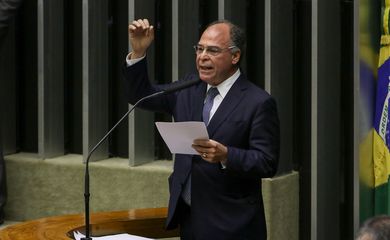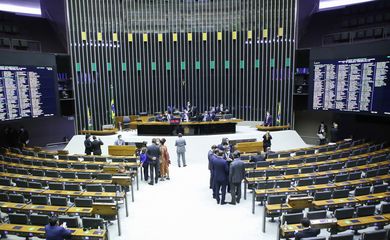Senate approves in two rounds PEC of Precatório
With a loose vote, the Senate approved, in the early afternoon of this Thursday (2), in two rounds, the so-called PEC dos Precatório. In the first round, the score was 64 in favor and 13 against, while in the second round there were 61 votes in favor and 10 against. To enable voting on the text and guarantee the minimum 49 votes needed in each turn in the Senate plenary, the government leader in the House and rapporteur of the proposal, Fernando Bezerra Coelho (MDB-PE), made significant last-minute changes in the last version of the text that had been approved last Tuesday (30) by the Committee on Constitution and Justice (CCJ).

The government was urgent in approving the proposal to remove Brazil's Auxílio from the paper this year. The program that will replace Bolsa Família will have payment of installments with an average value of R$ 400. It has already been defined by the article that the ceiling on this benefit amount will be permanent and not temporary, only in 2022, as the economic team initially proposed. The program is expected to serve 17 million families.
In practice, the PEC postpones the payment of court orders – debts recognized by the Court in actions that can no longer be appealed – by the Federal Government. In 2022, the expected debt is R$ 89.1 billion. With the PEC, the government has a financial slack to finance Brazil Aid. Under the proposal, the maximum amount to be paid in court orders next year is approximately R$39.9 billion. In order to increase fiscal breath, the text also changes the calculation of the Spending Ceiling - the limit on the increase in federal spending to the Budget of the previous year, corrected for inflation.
Changes
In the list of main modifications made by the rapporteur is the reduction of the term of validity of the limit in the Budget destined to the payment of court orders. By the approved text, the spending ceiling, which restricts the growth of expenses to inflation, will have to be discussed again in 2026, the measure goes against what Economy Minister Paulo Guedes wanted.
"Instead of being in force for the entire time of the New Tax Regime, that is, until 2036, the sub-limit for court orders will run until 2026, allowing enough time for the Executive Branch to better monitor the process of calculation and formation of court orders and their fiscal risks , but without creating a liability of even more difficult budget execution", explained the rapporteur on the sixth version of the text.
Another change made by Bezerra excludes from the PEC measures related to the securitization of tax debts. "The measure, although meritorious, did not find consensus in the Federal Senate, and there is no harm in leaving this discussion for another moment", he assessed. Also according to the proposal, the open fiscal space with the restriction of the payment of court orders and the change in the calculation of the government spending ceiling - a total of R$ 106 billion - will be entirely destined for social purposes, such as programs to combat poverty and extreme poverty, health, social assistance and welfare.
Pressured by several parliamentarians, the government had already withdrawn from the spending ceiling the precatories of the Fund for Fundamental Maintenance and Development and the Valorization of Teaching (Fundef). Resources owed to states and municipalities will be paid in three annual installments. Payment will be made according to a priority queue organized by type of precatório. Small Value Requisitions (RVPs) of up to R$66 thousand. As a result, there will be food debts for the elderly, people with disabilities and serious illnesses.
Rite
As it underwent changes, the PEC dos Precatórios will have to return to the analysis of the Chamber of Deputies. The proposal can only be enacted by the National Congress and becomes effective when deputies and senators reach a consensus and approve the same text.
Text translated using artificial intelligence.




